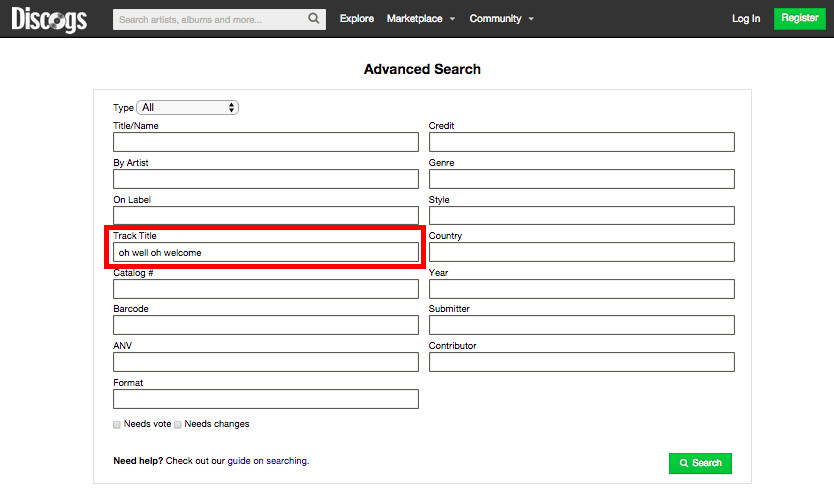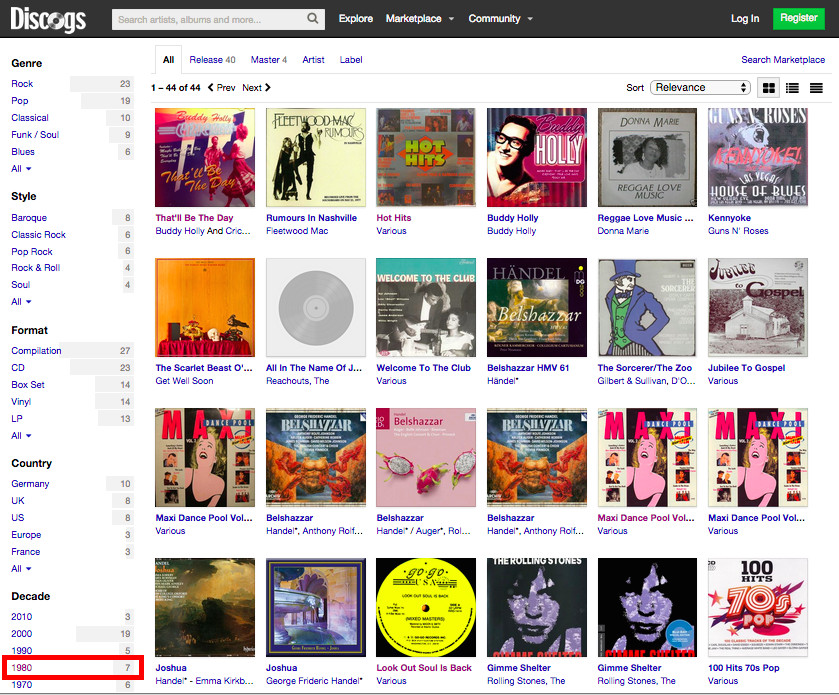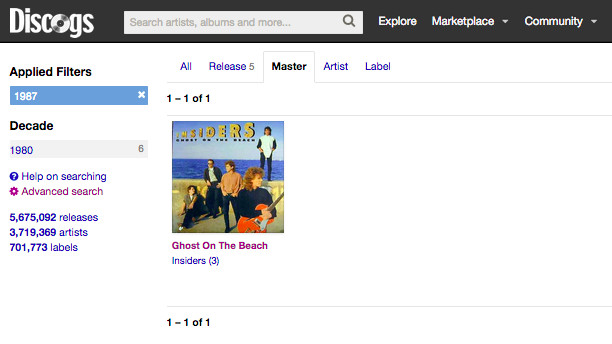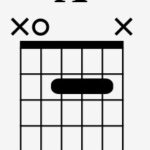It’s a familiar digital age frustration: you’re watching a hilarious video online – maybe a meme compilation, a skit, or a funny animal clip – and then it happens. The video ends, and a killer electric guitar riff kicks in. You’re hooked. That electric guitar song at the end of the funny video is now stuck in your head, but what is it? Lyrics are scarce, and simply humming it into your phone’s music ID app isn’t working. You’re not alone. Many music lovers find themselves in this exact situation, trying to identify that elusive electric guitar song from the tail end of a funny video.
For years, people have scoured the internet, joining online communities like WatZatSong, Midomi, and Reddit’s r/NameThatSong, all in the hope of crowdsourcing the answer to their musical mystery. They post descriptions, hum tunes, and share any scrap of information, hoping someone, somewhere, recognizes the song.
But what if crowdsourcing isn’t giving you the answers you need? What if you want to take matters into your own hands and become your own musical detective? You don’t need to be a musical genius or have encyclopedic knowledge of every electric guitar song ever recorded. In fact, often the most successful song identifications come from those who are unfamiliar with the music itself but are skilled in online sleuthing. The key is to understand how to use the clues hidden within the recording itself and leverage freely available online resources.
This guide will walk you through a proven method for identifying those mystery electric guitar songs, especially the kind that often appear at the end of funny videos. It’s a system built on deductive reasoning and strategic online research, perfect for when you’re determined to find the name of that electric guitar track that made you laugh and rock out all at once.
Let’s dive in and uncover the secrets to finding that electric guitar song.
1. Listen Closely and Note Down Any Lyrics or Instrumental Cues
The first step in your musical investigation is to meticulously examine the source itself – the funny video. Even if the electric guitar song is instrumental, there are clues to be found. Listen intently, and repeatedly if necessary.
If there are any lyrics at all, even just a few words mumbled or shouted, write them down. These lyrical snippets are gold. Even if you can’t decipher every word, capture the sounds phonetically. Sometimes, misheard lyrics can still be close enough to lead you in the right direction.
If the song is purely instrumental, focus on identifying any distinct musical elements. Is there a prominent electric guitar riff? What’s the tempo? What’s the overall mood – is it upbeat, heavy, melodic, bluesy, or something else? Note down descriptive terms that come to mind when you hear the electric guitar. “Fast tempo blues riff,” “heavy distortion,” “melodic solo,” “funky rhythm guitar,” these kinds of descriptions can be surprisingly helpful later.
Consider the context of the funny video itself. Does the electric guitar song seem to fit the video’s theme or style? Is it a genre you might expect to hear in this type of content? Sometimes, the genre of the video can provide hints about the genre of the music used.
Once you have your lyrical snippets or instrumental descriptions, it’s time to move to the next powerful tool in your arsenal: online music databases.
2. Harness the Power of Discogs and Similar Music Databases
Discogs is a massive, community-built database of music releases. While it’s renowned for its comprehensive discographies and marketplace, its Advanced Search function is a song identifier’s best friend. And it’s completely free to use.
 Discogs Advanced Search
Discogs Advanced Search
Navigate to Discogs and find the Advanced Search. Here, you can search specifically within “Track Title.” If you’ve managed to catch any lyrics from the electric guitar song, even fragmented ones, enter them into the “Track Title” field.
Let’s imagine you think you hear the words “electric blues” in the song from your funny video. Typing “electric blues” into the Track Title search might seem too broad, but it’s a starting point. Discogs will search its database for song titles containing those keywords.
If the electric guitar song is instrumental, this step might seem less direct, but you can still use descriptive terms. For example, if you noted “funky electric guitar riff,” try searching for “funky riff” or “guitar funk” in the Track Title field. Be creative with your keyword combinations.
Initially, your search might return a large number of results. This is where filtering becomes essential.
3. Refine Your Search with Filters: Decade, Genre, and Region
Discogs’ Advanced Search offers powerful filters to narrow down your results. Think about the context of the funny video and the electric guitar song itself to apply relevant filters.
Decade: Consider the style and sound of the electric guitar music. Does it sound like it’s from the 80s, 90s, 2000s, or more recent? Often, the production style and instrumentation can give away the approximate decade of a song. Using the “Decade” filter can drastically reduce your search results. If the electric guitar has a very processed, digital sound, it might be more recent. If it has a classic rock or bluesy tone, it could be older.
Genre: While genre classifications can be subjective, try to identify the most likely genre of the electric guitar song. Is it rock, blues, funk, electronic, metal, or something else? Applying a genre filter can help eliminate irrelevant results. If the funny video is a fast-paced action comedy, the electric guitar song might be in the rock or electronic genre. If it’s a more laid-back, quirky comedy, it could be funk or blues.
Region: While less crucial for identifying the song itself, the region filter can sometimes be helpful if you have other clues. For instance, if the funny video originates from a specific country or region, the music might also be from that area.
 Discogs Search Results
Discogs Search Results
By combining keyword searches with filters, you can progressively narrow down the results in Discogs to a more manageable number. Remember, the goal isn’t to find an exact match immediately, but to find potential candidates to investigate further.
4. Utilize Streaming Music Platforms and Video Sites to Investigate Potential Matches
Once you have a list of potential song titles from Discogs, the next step is to listen to them. Streaming music services like YouTube Music, Spotify, Apple Music, and even YouTube itself are invaluable at this stage.
Copy the song titles and artist names from your Discogs search results and paste them into the search bars of these streaming platforms. Listen to snippets or full songs if available. Does any of them sound like the electric guitar song from your funny video?
Pay close attention to the electric guitar parts. Does the guitar tone, style of playing, and overall riff or melody match what you remember from the video? Sometimes, even a short snippet of a song on a streaming platform is enough to confirm or eliminate it as a possibility.
YouTube is particularly useful because many less mainstream songs and deep album cuts can be found there, even if they aren’t available on major streaming services. Furthermore, searching for “[artist name] live” or “[song name] instrumental” on YouTube can sometimes reveal versions of the song that highlight the electric guitar parts even more clearly.
If you find a song that seems promising, listen to it multiple times, comparing it closely to your memory of the electric guitar song from the funny video.
5. Repeat and Refine: Try Different Keywords and Search Strategies
If your initial searches don’t yield results, don’t give up. Song identification is often an iterative process. Go back to step one and re-examine your clues.
Re-listen to the funny video: Did you miss any lyrics? Can you refine your description of the electric guitar music? Perhaps the tempo is faster than you initially thought, or the genre is slightly different.
Brainstorm alternative keywords: If “electric blues” didn’t work, try “blues guitar,” “fast guitar,” “rock riff,” “instrumental rock,” or other related terms in Discogs. Think about synonyms and related concepts.
Explore other music databases: While Discogs is incredibly powerful, there are other online music databases that might be helpful. AllMusic, MusicBrainz, and even Wikipedia can sometimes provide song information and discographies that can aid your search.
Try lyric search engines: If you have even a few words of lyrics, try using lyric search engines like Google, Bing, or dedicated lyric sites. Even misheard lyrics can sometimes lead to correct matches.
Consider online music identification services: While you might have already tried Shazam or Soundhound with limited success, sometimes these services can identify songs that are less prominent or have been slightly altered. It’s worth another try, especially after you’ve refined your understanding of the song through other search methods.
Ask online communities: If you’ve exhausted your individual search efforts, return to online music communities like WatZatSong or Reddit’s r/NameThatSong. Provide as much detail as possible about the funny video, the electric guitar song, and the searches you’ve already tried. Sometimes, a fresh pair of ears or eyes from the online community can crack the case.
Example Scenario: Finding an Electric Guitar Outro Song
Let’s imagine you’re watching a funny skateboarding fail compilation video. At the end, as the video fades out, a catchy, upbeat electric guitar song kicks in. It’s purely instrumental, with a driving rhythm and a memorable, slightly distorted guitar riff. You want to identify this electric guitar song.
Following the steps above:
-
Audio Clues: Instrumental, upbeat tempo, driving rhythm, distorted electric guitar riff, energetic mood.
-
Discogs Search (Initial): You might start by searching “instrumental guitar” in Track Title. This will likely yield too many results.
-
Discogs Search (Refined): Add filters. Based on the energetic, modern feel, you might filter by “Decade: 2000s” and “Genre: Rock” or “Genre: Instrumental Rock.” You could also try keywords like “driving guitar” or “upbeat riff.”
-
Streaming Platform Search: From the refined Discogs results, you find a track titled “Action Beat” by an artist called “The Riff Raiders.” You search for this on YouTube Music and listen. The electric guitar riff sounds very similar to the one in the funny skateboarding video!
-
Verification: You listen to “Action Beat” a few more times, comparing it to your memory of the outro song. The tempo, the guitar tone, and the overall energy match perfectly. You’ve likely found your electric guitar song!
 Discogs Insiders Search
Discogs Insiders Search
Conclusion: Persistence and the Right Tools Are Key
Identifying an electric guitar song from a funny video, or any mystery song for that matter, can be challenging, but it’s also a rewarding puzzle to solve. By systematically analyzing the audio clues, leveraging online music databases like Discogs, and utilizing streaming platforms for verification, you significantly increase your chances of success.
Remember, persistence is key. Not every search will be successful on the first try. But by refining your search strategies, trying different keywords, and utilizing the resources outlined in this guide, you can become a proficient musical detective, capable of uncovering even the most obscure electric guitar songs lurking at the end of your favorite funny videos. Now go forth and conquer those musical mysteries!

